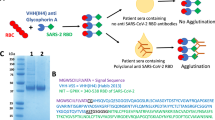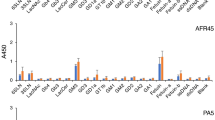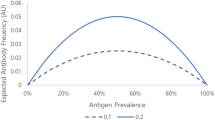Abstract
IN recent years a number of reports have been published on the occurrence of Rh antibodies other than the saline agglutinins and the incomplete or blocking antibodies (the ‘bivalent’ or ‘univalent’ antibodies in Wiener's terminology). Wiener himself now subdivides the univalent antibodies into glutinins and blocking antibodies; both are detectable by the serum–albumin conglutination technique. Witebsky and Mohn have reported the finding of a second type of blocking antibody, which blocks glutinins but not agglutinins. In addition, these workers have confirmed the occurrence of still another type of antibody which was originally described by Hill and Haberman and was called the cryptagglutinoid. This has neither agglutinating nor blocking properties, but can be adsorbed on to Rh-positive cells and is detectable by the indirect Coombs technique. The five different Rh antibodies or phases of antibody activity and the tests by which the various workers claim they are detected are set out in Table 1.
This is a preview of subscription content, access via your institution
Access options
Subscribe to this journal
Receive 51 print issues and online access
$199.00 per year
only $3.90 per issue
Buy this article
- Purchase on Springer Link
- Instant access to full article PDF
Prices may be subject to local taxes which are calculated during checkout
Similar content being viewed by others
Author information
Authors and Affiliations
Rights and permissions
About this article
Cite this article
KRIEGER, V., WILLIAMS, E. Different Forms of Rh Antibodies. Nature 169, 414–415 (1952). https://doi.org/10.1038/169414a0
Issue Date:
DOI: https://doi.org/10.1038/169414a0
Comments
By submitting a comment you agree to abide by our Terms and Community Guidelines. If you find something abusive or that does not comply with our terms or guidelines please flag it as inappropriate.



